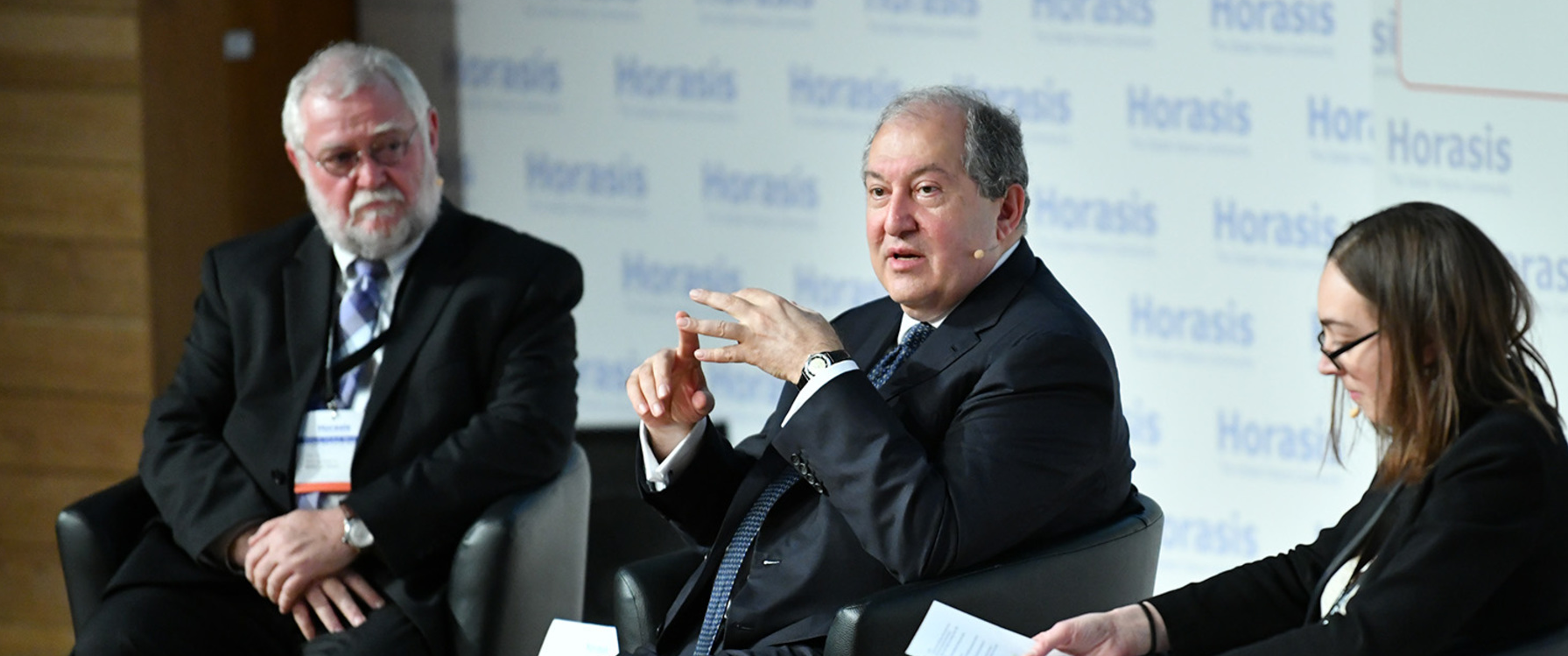Summary of Horasis Global Meeting, 8 June 2021: Fostering Shared Humanity
The sixth Horasis Global Meeting has been forced to be a virtual event by the global COVID restrictions: nevertheless, the meeting continues to be hosted by the Portuguese coastal City of Cascais. Horasis is honored to be part of the process within which Cascais is developing into a global center for dialogue. This meeting’s theme was Fostering Shared Humanity and saw more than 1,000 delegates from 70 nations discussing via digital links, in plenary and panel sessions how to rebuild leadership roles post-COVID so as to inspire for the future. Armen Sarkissian, President of Armenia, Armenia said it is important to share our concepts of humanity across borders: one must learn to trust again. We must learn to live in our new world that is dramatically different from earlier times and is rapidly evolving. Rania A. Al-Mashat added that managing COVID is emblematic of the present global management that must grasp the need to change. And, according to Ricardo Serrão Santos, Minister of the Sea, Portugal, we have a rare but brief opportunity to discuss potential solutions for the myriad of disruptions and to propose sustainable pathways that will be led by compassionate leadership on global and local levels.
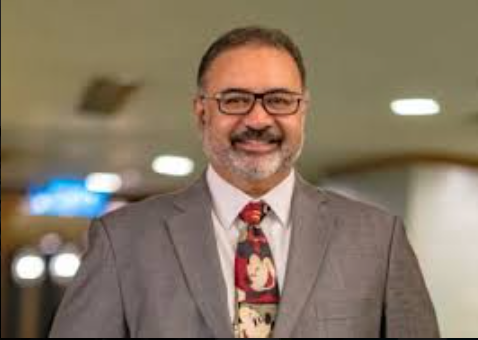
Vinod Sekhar, Chairman and Group Chief Executive Officer, Petra Group, Malaysia
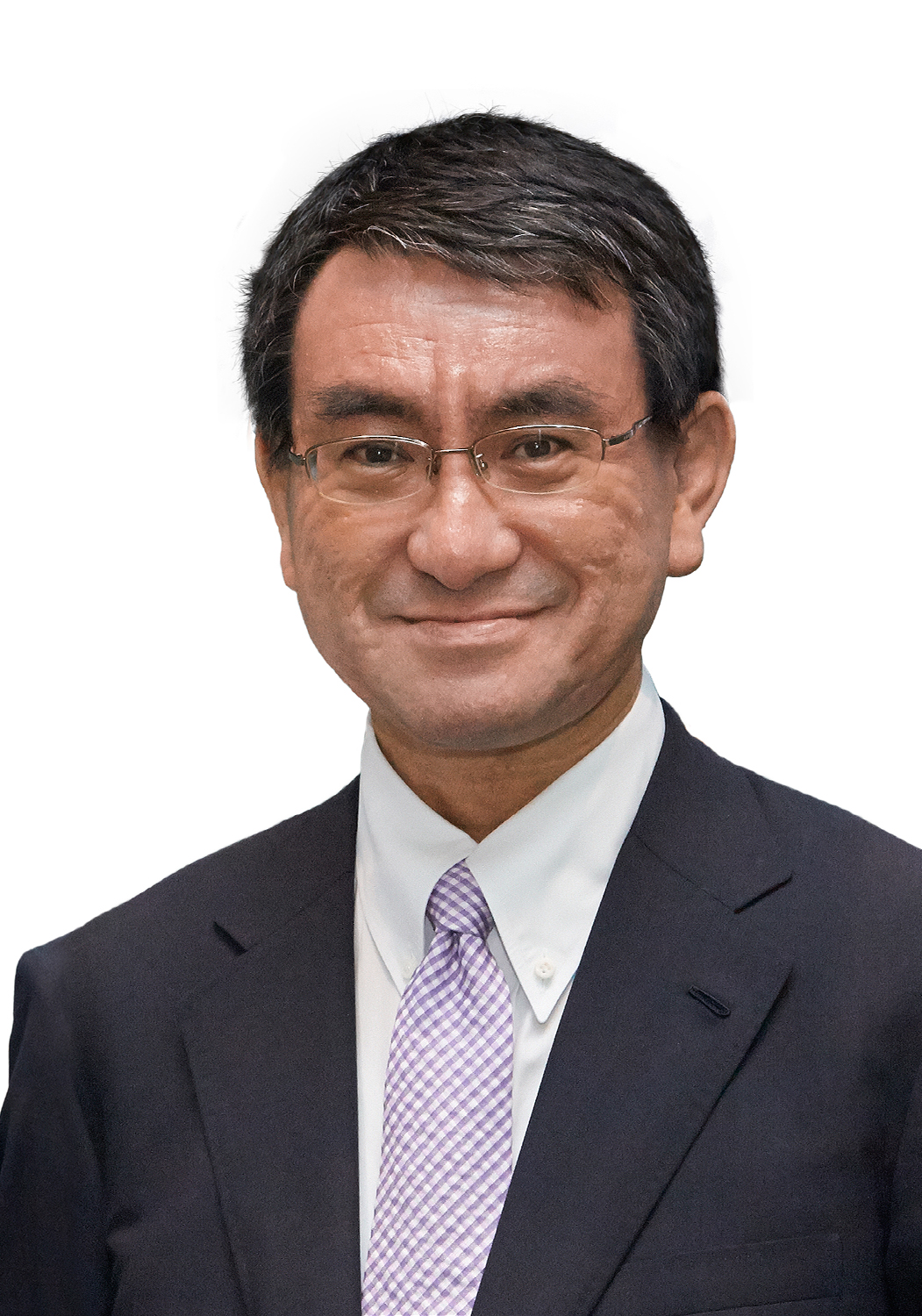
Taro Kono, Minister for Administrative Reform and Regulatory Reform, Japan
The world has changed, and we have yet to understand by how much. Further to the economics of COVID, the globe faces movement towards meeting the UN (Paris) Accord of 2015 relating to climate change challenges as well as the UN Sustainable Development Goals (SDGs), explained Taro Kono, Minister for Administrative Reform and Regulatory Reform, Japan. Vinod Sekhar, Chairman and Group Chief Executive Officer, Petra Group, Malaysia who was the strategic partner for this meeting, hoped the meeting’s leaders will take their findings forward into the firms and nations to benefit our shared humanity. He said, today it is most critical to accept the totality of the SDGs and that Social Capitalism, which he embraced, suggests that businesses can be more profitable by engaging in poverty eradication as then richer people will help all firms develop. And, as Lisa Edwards, President and Chief Operating Officer, Diligent Corporation, USA, put it: Society and business leaders can no longer disengage – it is logical to have a strong business view: the bottom line is, we cannot afford to ignore the SDGs. David de Rothschild, Founder, Voice for Nature, United Kingdom accepted it is exciting to use components of the capital markets to reach to the SDGs and to slow distracting narratives. Sadly, he continued, the ESGs and SDGs have become a label to adopt but have no accountability, especially if targeting 2050 when those adopting the measures today will be absent. Lord Barker of Battle, Executive Chairman, En+ Group, United Kingdom emphasized the pandemic has created massive impacts on governments and especially the poor. Although SDGs are there, we need to translate them into fewer headline points to make them more understandable, as Borja Santos Porras, Executive Director, GPA Pathway, IE University, Spain said. This was a point accepted by Nadja Swarovski, Chair, Swarovski Foundation, United Kingdom – the SDGs are not known well enough. We must educate the people better to support adherence.
It was perhaps inevitable that COVID and its many ramifications seemed to infiltrate many of the panel discussions. The COVID transmission was declared by the World Health Organization (WHO) as a pandemic in January 2020. They warned it would be found in every nation though not all at the same time: viruses take time to travel and to mutate. Following the mid-March 2020 analysis and publication of SARS-CoV-2 genome by GISAID, a non-profit public-private health partnership, many anti-viral manufacturers hastened to develop and trial their vaccine designs. By November 2020 the Pfizer-BioNTech partnership obtained the first emergency-use authorization in the UK, other nations followed suit: by March 2021, 308 vaccines were authorized or in clinical trials.
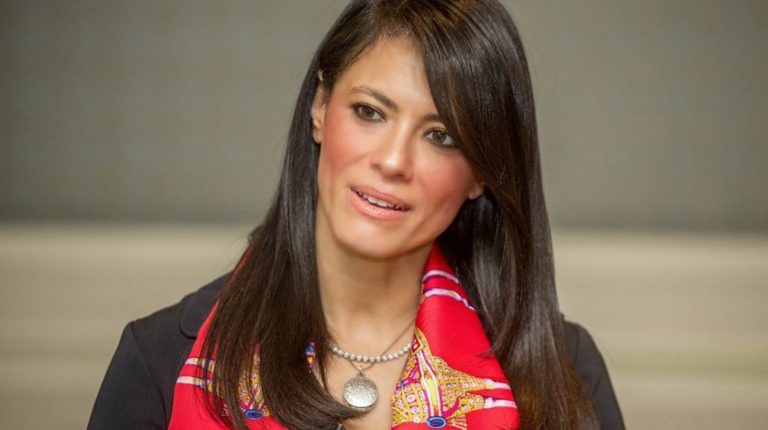
Rania A. Al-Mashat, Minister of International Cooperation, Egypt
The US and the UK attempted to vaccinate most of their population to achieve ‘herd immunity’ whereby the lack of unvaccinated persons causes the spread of the virus to halt so protecting everyone. And, as Hank McKinnell, Chairman, Moody’s, USA, stressed, some nations have had less success, due to the personal worries of individuals about vaccination in general, and due to false information about COVID vaccinations in particular. The WTO hopes the vaccine hesitancy rate will decline rapidly as the hesitant see no harm has befallen those who are vaccinated. Miguel de Serpa Soares, Under-Secretary-General for Legal Affairs, United Nations discussed how the engagement the UN has placed on COVID – and said “we can’t go back to the old-normal”. The COVAX Programme needs many more injections – but UN has only ‘the power of insistence – a verbal stress on morals, yet the G7 has promised vaccines and equipment and staff more to this programme. However, the UN is the only truly global discussion forum and it constantly develops.
Every virus mutates, often into a benign form, but sometimes into a new, more transmittable form. The WTO has called for a neutral naming of variants, beginning with COVID, but its mutations have tended to be cited by their geographical origin as that is easier for the public to remember than a code system.
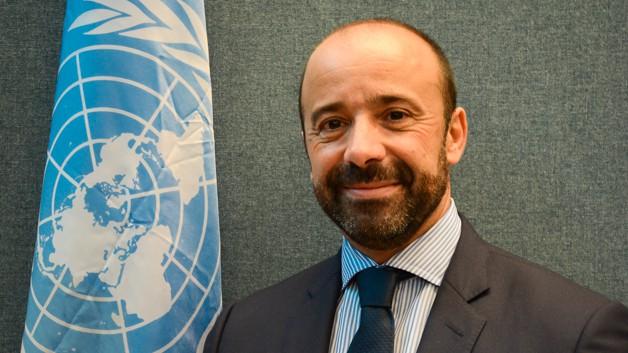
Miguel de Serpa Soares, Under-Secretary-General for Legal Affairs and UN Legal Counsel, United Nations
There is another global confusion in the public domain, as politicians are reluctant to follow scientific advice since they think their public will blame them for their decision oscillation, said Vijay Eswaran, Chairman, QI Group, Hong Kong. However, scientists have not fully educated politicians or honest media writers about the changing probabilities of the progress of COVID as more data are gathered. In the initial months of COVID much speculation occurred about transmission modes, fatality rates and the ways of management or of containing its spread. Many governments opined based on little or false data, and the public followed their erroneous advice. Esko Aho, Former Prime Minister of Finland, Finland opines democratic institutions are always challenged, but in some epoch more so than others: presently many are rather weak in decision making and executing decisions. He noted how the three Nordic nations have a long and common tradition of rule of law, trust in institutions which treat individuals well, and good social mobility which has derived from well-founded education.
In recent research 121 different indicators from data gathered across 200 countries were analyzed noting, crucially, that developing nations with a young demography have so far shown a lower infection case-load. Youth was always known to be less vulnerable to COVID infection and its complications than older people. As such it may be the savior in developing nations as they have had too few early vaccine doses to administer due to the developed nations’ concentration on their own double or even triple vaccination doses per person in their more elderly populations. The G7 meeting in June 2021 stated their governments would donate many millions of vaccines to COVAX to distribute worldwide (COVAX is co-led by Gavi, the Coalition for Epidemic Preparedness Innovations (CEPI) and WHO). Ranil Wickremesinghe, Former Prime Minister, Sri Lanka expects the G7 will be the true start of better global COVID cooperation, but there are wide policy issues affecting all economies especially across South and SE Asia.
Defined as a pandemic, its effects were expected to be felt world-wide; and now, a year and a half after its appearance, its primary effects are yet to be felt in many developing economies. In the strong economies of China, the US and across Europe its effects are legion, not only in furloughing the leisure and hospitality sectors but also in their precise service industries such as airlines. Hemant Kanoria, Chairman, Srei Infrastructure Finance Limited, India accepted the second wave of COVID was really bad as it was more virulent: it was a Herculean task to manage. But other economic sectors have developed and thrived – the delivery of all types of goods to the home, and the newcomer: local hot food delivery and the packaged delivery of ingredients for meals with menus and cooking guides, concluded Michael Shvo, Chairman and Chief Executive Officer, SHVO, USA.
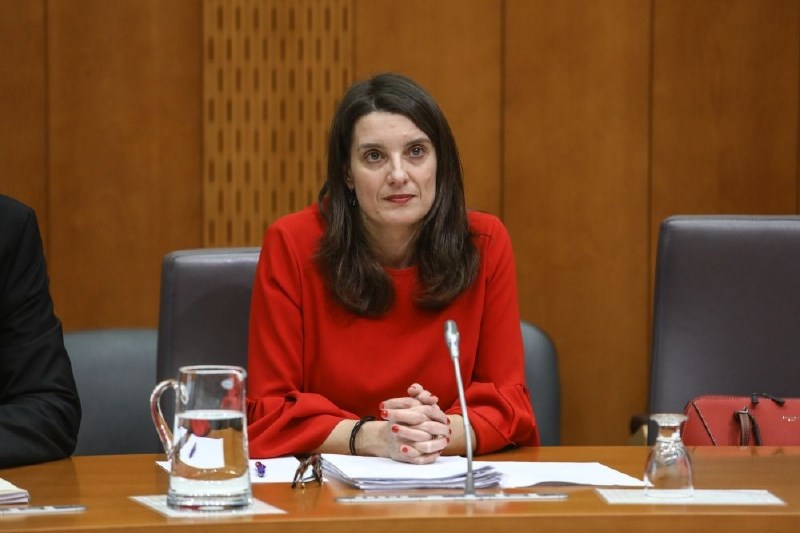
Simona Kustec, Minister of Education, Science and Sport, Slovenia
Once anti-viral drugs began to flow in greater numbers and the COVID cases reduced, economies began to grow. Economies recovered rapidly in China, the US and in the EU as pent-up demand due to confinement boredom broke free. According to Simona Kustec, Minister of Education, Science and Sport, Slovenia the demand has often been fueled by government cash for furloughing from government to person and then into the person’s bank: cash was in plentiful supply buy the goods as a celebration of the new freedom with many saying it is the end of COVID (though it has not been eradicated). Staff returned to work and had to learn a new set of distancing rules, wearing masks, and so on. Preeti Sinha, Executive Secretary, United Nations Capital Development Fund, United Nations stressed the future in terms of human development as it is difficult to achieve standard global level of living. We must create the concept of a ‘share’ in the form of a bond in which we can invest. Thus, when benefits accrue within the SDG it would create a new marketable concept: all will benefit.
To an extent this is in accord with the words of HH Princess Märtha Louise of Norway, explained, some while ago, one of the female Prime Ministers of Norway being interested in women’s rights helped modify the Norwegian Act of Succession that would in future permit female first-born to take the crown in Norway; but not for herself, as her younger brother is presently in line for the throne. Further, she noted nations with female leaders have done rather better through the pandemic as the masculine/female energy is different: as in micro-finance, wherein the woman builds and supports into the whole community – that is, ‘we need to do this together’. A point echoed by Annette Nijs, Former Cabinet Minister for Education, Science and Culture, The Netherlands who asked if we can be more innovative after COVID than before, as cash flows were a originally a difficulty but which reduced during the crisis?
Before the inauguration of US President Biden and during the months following, the trade embargos mainly against China imposed by former President Trump were felt more strongly across all economies. The US embargoes were often reciprocated. Economists predicted a global slowdown in GDP growth. Barbara Ann Bernard, Chief Executive Officer, Wincrest Capital, Bahamas concurs: that global recovery is uneven. She thinks inflation is here to stay as house prices (in the US) having doubled this year will not fall similarly next year. But individual investors can win – if one invests in commodities, they may outsmart inflationary trends – as governments go ‘green’ the value of copper and other basic commodities have risen. According to Annette Weisbach, Correspondent, CNBC, Germany, pundits have struggled with their description of the present indications of inflation, describing it as transitory. This is backed up by the Federal Reserve in the US, responsible for fiscal and monetary management, who have stated the inflation will be a short-term spike. The investment market reacted with greater volatility.

Ricardo Serrão Santos, Minister of the Sea, Portugal
During the first 100 days of the Biden government the President initiated many new policies, including several that have increased the debt burden of the US – many are tied to the COVID pandemic and the effects thereof – like providing cash to all US citizens to help them organize their lives whether they have been furloughed (with or without pay) or remaining in work, explained Raja Krishnamoorthi, Congressman for Illinois, USA. Not having to run a means-testing procedure made the payout faster and also less costly. It is a moot point however whether this cash returned quickly into the real economy, or was sequestered as savings. Quickly it became clear there was a mismatch in supply and demand. Trade sanctions were not revoked by the Biden administration and these have resulted in specific component gaps having cascaded ramifications – especially in components having embedded electronic chips. Many economists consider the early 2021 spending boom to have been promoted by having cash in the bank leading to a rush to buy.
We have to ask how to implement New Green Deals to rebuild economies and societies for a global Carbon-free future. Bo Inge Andersson, President and Founder, Ivanhoe IV, USA addressed this issue at length by noting the size of the personal transportation problem: there are 1.4 billion cars globally producing 21% global CO2 emissions, and only 10 million cars are electrical. We have the technical solutions today – but we need much greater application and change in the constraints as the current technical solutions are too costly, or are not profitable.
As some economies re-opened customers gained confidence amid successful vaccine rollouts and upstream factory order books were buoyant again in the US and Europe, said Jenny Gilruth, Minister for Europe and International Development Government of Scotland. More recent data analyses indicate an inflationary trend as money searched for too few goods due to supply chain disruption and delays, as well as there being a shortage of trained staff across sectors. Péter Szijjártó, Minister of Foreign Affairs and Trade, Hungary said there is no magic mode for regeneration, but there is the beginning of a new age of global competition. In smaller nations like Hungary, in order to open up, they need vaccines and ultimately better local health support. Adrian Oros, Minister of Agriculture, Romania commented further on the effects of COVID that has left many local firms at risk especially as only the main EU nations within the EU are cared for, not the peripheral ones. New innovation is important to Romania as climate change responsibility needs water conservation and soil husbandry to grasp sustainably though it may be more costly. He worries that food will be imported to Romania from EU nations who do not strive for the Green Deal. In his view, no EU governments are doing enough to stimulate agricultural innovation. Julia Klöckner, Minister of Food, Agriculture and Consumer Protection, Germany noted climate change knows no borders and it is continually destroying agricultural land and increases aggression: we must invest in new aggrotech while reducing emissions.

Julia Klöckner, Ministe of Food Agriculture and Consumer Protection, Germany
It is clear that global nations, economically as well as politically, are as divided as ever, as Marta Morgan, Deputy Minister of Foreign Affairs, Canada put it. The US, Canada, Europe together with other developed nations are thriving, but are dependent on rebuilding their supply chains and buying from abroad rather than recreating factories in their nations. Questions have arisen about the nature and strategy of Europe following Brexit. Historically this is due in part to pressures noted by Albania – said Eduard Shalsi, Minister of State for the Protection of Entrepreneurship, Albania. Once we dreamed of being like Europe, but now we realize we are Albania with our own challenges including the linkages to global events like COVID. EU has demanded reforms from Albania, yet their own politics often blocked the accession of Albania despite the changes demanded of the Albanian people. Regionally, he continued, we see Albania is within the Balkan region and we ought to be joined as a whole to EU. Furthermore, compromise is not necessarily the best solution noted Carmelo Abela, Minister within the Office of the Prime Minister, Malta, it is not the lowest denominator, yet it represents the best possible solution at the present time. There is a need for an open strategic autonomy across EU, plus a stronger role for global institutions.
Africa has the world’s youngest population and will soon represent one-fifth of the world population. The continent is poised to become the world’s engine of growth. Manqoba B. Khumalo, Minister for Commerce, Industry and Trade, Eswatini celebrated the birth of the African Continental Free Trade Area which signals reductions in all restrictions to inter-African trade, aiming by 2035, to double its internal trade by enhancing its intellectual property rights, industrial development and supply chains. COVID-19 crisis has slowed us down. He ensures its youth must be part of the solution. Vera Esperança dos Santos Daves de Sousa, Minister of Finance, Angola stated Angola and other nations must change the ways in which Africa does business: to develop objectives for each nation and then between nations to define the strengths and objectives to reach global markets. Béata Habyarimana, Minister for Trade and Industry, Rwanda, informed how Rwanda has introduced reforms to make it easier for incoming businesses. Administrative reform was first; then regulatory reform; and then digital reforms: it has risen into the top 40 nations globally in the ease of doing business.
Europe and the US have, by and large, controlled their COVID outbreaks. But developing nations across South America, Africa and South-East Asia have yet to begin serious vaccination programs. Their vaccine production facilities and shipping modes are not yet re-secured from trade embargoes or from internal COVID issues. Despite vigorous financial rigor and rebuilding of real capacity as well as personal capacities, trust building will take some while, said Diego Mesa, Minister of Mines and Energy, Colombia. And, while Africa as well as parts of South and East Asia have a young demographic, every day all nations grow older so their governments must consider how they are to build wealth to generate social and health care for an eventual aging population. First, said Kris Gopalakrishnan, Chairman, Axilor Ventures and Co-founder, Infosys, India we must acknowledge the role of trust and facts, and need for a belief in science and technology to get vaccines into arms. We need philanthropy to be better applied. Soon health care should shift from the ill to the care of the healthy to determine their characteristics via remote sensing. Alan Patricof, Founder, Greycroft and Apax Partners, USA agreed, as people and staff are all at different stages within the COVID model. He has helped cope with his staff’s mental stress using virtual games nights, or digital culture trips. Yet the fastest growing section of society are the growing elderly who are now aging at home and need to learn about technology like smartphones that enable remote sensing so get ahead of any critical personal issues.

Many in the services industry will remain out of work for a while, or at least until flexible tourism returns when flights, hotels and restaurants will be free to accommodate people from short or long-haul flights, said Young Sohn, Chairman, HARMAN International, USA. And in the holiday locations, the shops need to be stocked and restocked with all the items people traditionally need. Megan J. Smith, Founder and Chief Executive Officer, shift7; Former CTO of the United States, USA said commercial economies are complex systems, and individuals, assembling products in the G7 nations or beyond wishing to buy and sell goods, will become frustrated by the economic frictions and blame their governments, though it is not wholly their fault. Frustrations are blind to reason – so political instabilities might arise affecting future elections and affecting geo-politics globally. Janez Cigler Kralj, Minister of Labor, Family, Social Affairs and Equal Opportunities, Slovenia said we must strengthen the responsiveness of labor market to absorb technological change accepting inclusiveness and greening generating a better life quality for all generations.
Somewhat at the center and often ignored, is the Greater Caspian Region. Murat Seitnepesov, Chairman, Caspian Week, Switzerland informed us of the region’s 500 million people, vast resources of gas, oil and minerals and entrepreneurs. There is a big future for growth though there are many internal issues. Linking to these concepts of greater economic and social activity across Central Asia, but essentially concerning our need to better value global youth, the panelists in the final plenary raised education as one major need – now and in the future. Lord Karan Bilimoria, President, Confederation of British Industry, United Kingdom while chairing the B7 in UK last year (a group consolidation the G7 businesses said it would be best to roll back global protectionism, giving greater emphasis on ‘going digital’ which has naturally been in focus during the COVID pandemic. As Lynn C. Fritz, Proprietor, Lynmar Estate, USA put it: we should ensure the WTO fully supports open trade, and after that any number of bi- or pluri-lateral accords are possible – recognising some accords are only possible as a global deal. A point that was emphasised by Deborah Wince-Smith, President, United States Council on Competitiveness, USA who noted that presently we are in a period of low competitiveness. Nations must be more competitive to deliver better solutions for their people based on stronger shared collaboration over digital platforms. Inequality, such as it is, comes from the inequality of education (and in many nations, the lack of good education for all). There is no harm in repeating that the future is education, education and education, said Ibukun Awosika, Chair, First Bank of Nigeria, Nigeria. And making sure this occurs globally – in so doing we will surely be Fostering Shared Humanity, concluded Kevin Abosch, Conceptual Artist and Pioneer in Cryptoart, Ireland.
On behalf of Horasis, I would like to thank personally all delegates for their efforts in contributing to the constructive dialogue as cornerstone to inspiring our future. The Horasis Global Meeting continues to be unique experience which would not have been possible without the dedication and enthusiasm of our partners from Portugal and the world.
Featured photo of Armen Sarkissian, President of Armenia, Armenia

